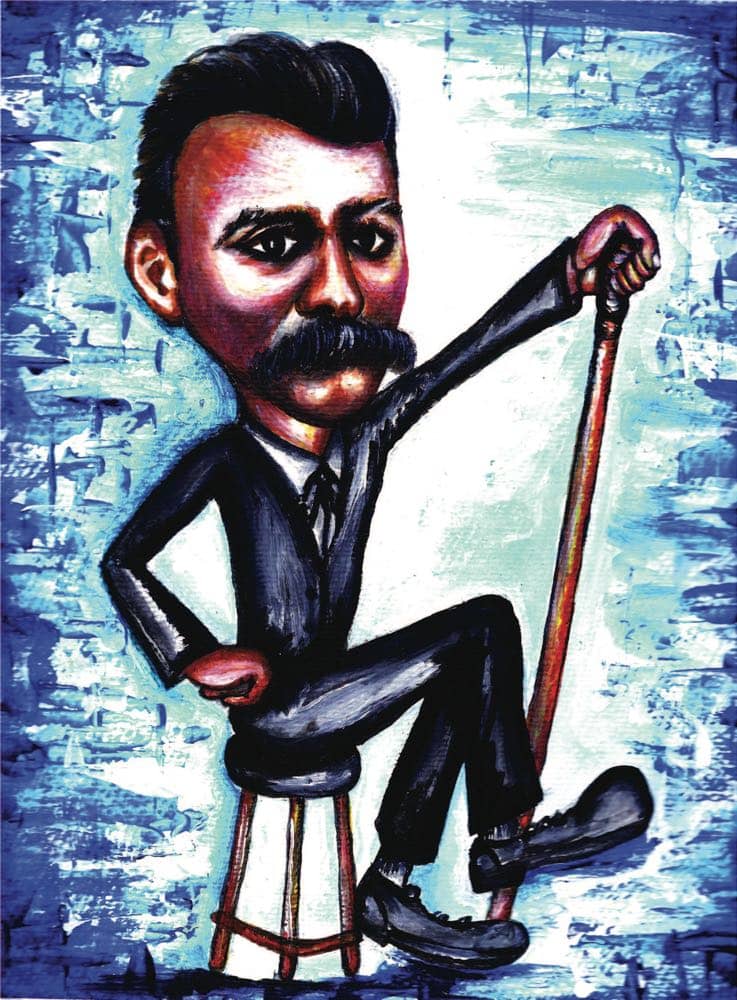
On his 2013 album Yeezus, the Chicago rapper Kanye West highlighted something that the world had failed to notice, namely, that he is a god. He had been called many things in his life – including a jackass by Barack Obama – but never this. Naturally, West’s deific pretensions incurred accusations of narcissism and blasphemy. The offending song was unambiguously titled ‘I Am a God’, and its message was clear: I, Kanye West, am more than human.
West later explained that the song was born out of frustration. Desperate to become a success in the fashion industry, yet feeling rebuffed by the labels he wanted to work with, he was tipped over the edge at Paris Fashion Week when he was pointedly asked not to attend a series of events: “So the next day I went to the studio with Daft Punk and I wrote ‘I Am a God’, ‘cause it’s like, yo, nobody can tell me where I can and can’t go. Man, I’m the number one living and breathing rock star.” Unsurprisingly, the god who emerges from the song’s lyrics seems closer to a diva than a divinity:
Esta historia es de la edición April/May 2020 de Philosophy Now.
Comience su prueba gratuita de Magzter GOLD de 7 días para acceder a miles de historias premium seleccionadas y a más de 9,000 revistas y periódicos.
Ya eres suscriptor ? Conectar
Esta historia es de la edición April/May 2020 de Philosophy Now.
Comience su prueba gratuita de Magzter GOLD de 7 días para acceder a miles de historias premium seleccionadas y a más de 9,000 revistas y periódicos.
Ya eres suscriptor? Conectar

Metaphors & Creativity
Ignacio Gonzalez-Martinez has a flash of inspiration about the role metaphors play in creative thought.

Medieval Islam & the Nature of God
Musa Mumtaz meditates on two maverick medieval Muslim metaphysicians.

Robert Stern
talks with AmirAli Maleki about philosophy in general, and Kant and Hegel in particular.

Volney (1757-1820)
John P. Irish travels the path of a revolutionary mind.

IT'S A WONDERFUL LIFE
Becky Lee Meadows considers questions of guilt, innocence, and despair in this classic Christmas movie.

"I refute it thus"
Raymond Tallis kicks immaterialism into touch.

Cave Girl Principles
Larry Chan takes us back to the dawn of thought.

A God of Limited Power
Philip Goff grasps hold of the problem of evil and comes up with a novel solution.

A Critique of Pure Atheism
Andrew Likoudis questions the basis of some popular atheist arguments.

Exploring Atheism
Amrit Pathak gives us a run-down of the foundations of modern atheism.